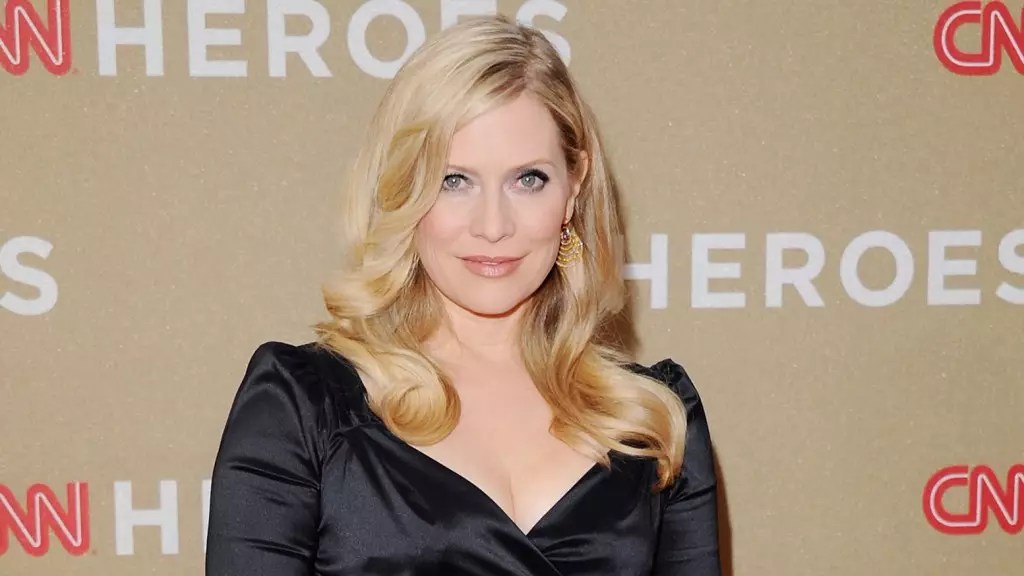The recent wildfires in Southern California have wrought havoc, displacing thousands and impacting the lives of countless residents. Among those affected is actress Emily Procter, known for her roles in television hits like *CSI: Miami* and *The West Wing*. In a heartfelt reflection on the destruction and its implications, Procter articulated not only her personal loss but also the collective grief of her close-knit community in the Pacific Palisades. The wildfires have not only destroyed homes but have also dismantled the very fabric of community life, highlighting the emotional and psychological toll such disasters inflict.
Procter’s experience of evacuating her home can resonate with anyone who has faced similar circumstances. The abruptness of leaving one’s home due to a natural disaster carries with it an unforeseen weight—one of loss, uncertainty, and fear. She expressed these sentiments eloquently when she shared that the news of her potential loss came from a stranger. This moment encapsulates the surreal nature of disasters: one moment you are settling into your home, and the next, you are confronted with existential questions about safety, belonging, and the future.
One aspect that Procter emphasized was the vibrant community life that characterized her neighborhood. The interconnectedness of the residents made it more than just a collection of houses; it was, as she described, “microcosms of people’s lives.” This dimension of community is crucial to understanding the depth of loss experienced when homes are destroyed. Procter’s poignant recollections of her neighbors—a pregnant friend, a college applicant, a playful bickering with her postman—paint a picture of a neighborhood filled with life, interactions, and shared stories.
The devastation of the wildfires thus transcends physical loss; it represents the loss of shared experiences, connections, and the daily rituals that form the backbone of community life. The destruction of such a tight-knit community raises significant questions about how those affected will rebuild not just their homes, but their lives. Procter’s inquiry about the “path forward” captures the uncertainty that looms over affected residents. Her emphasis on community support as a vital gift underlines the importance of human connection during crises.
The wildfires in Southern California are part of a broader narrative of natural disasters driven by climate change, urbanization, and environmental neglect. As the flames have ravaged Malibu, Eaton Canyon, and the Hollywood Hills, they reflect a growing trend of increasingly destructive wildfires across the globe. With at least six fatalities reported and nearly 180,000 evacuated, the scale of destruction raises urgent questions about preparedness and resilience in the face of such disasters.
Moreover, the impact extends beyond the immediate losses. Procter’s grief echoes the sentiment felt by other celebrities such as Paris Hilton, Milo Ventimiglia, and others who have also lost their homes. This collective experience underscores the indiscriminate nature of wildfires—they affect everyone, regardless of status or fame. As President Biden declared the situation a major disaster, the acknowledgment at a national level underscores an urgent call for solidarity and organized response efforts.
In the midst of this devastation, Procter’s call for community support brings a glimmer of hope. When she states, “offering of community is probably the greatest gift,” it serves as a reminder that support systems, compassion, and love can triumph over despair. The act of reaching out—whether through volunteering, financial assistance, or simply listening—can provide a sense of belonging and healing for those affected.
As Southern California grapples with the aftermath of these wildfires, the path forward will undoubtedly involve rebuilding both infrastructure and community bonds. It also necessitates a collective reflection on climate resilience and disaster preparedness, ensuring that future generations are better equipped to handle such catastrophic events. Procter’s narrative serves as a testament to the strength of community in adversity, reminding us that even amidst loss, the shared human experience can offer solace and a guide toward recovery.


Leave a Reply